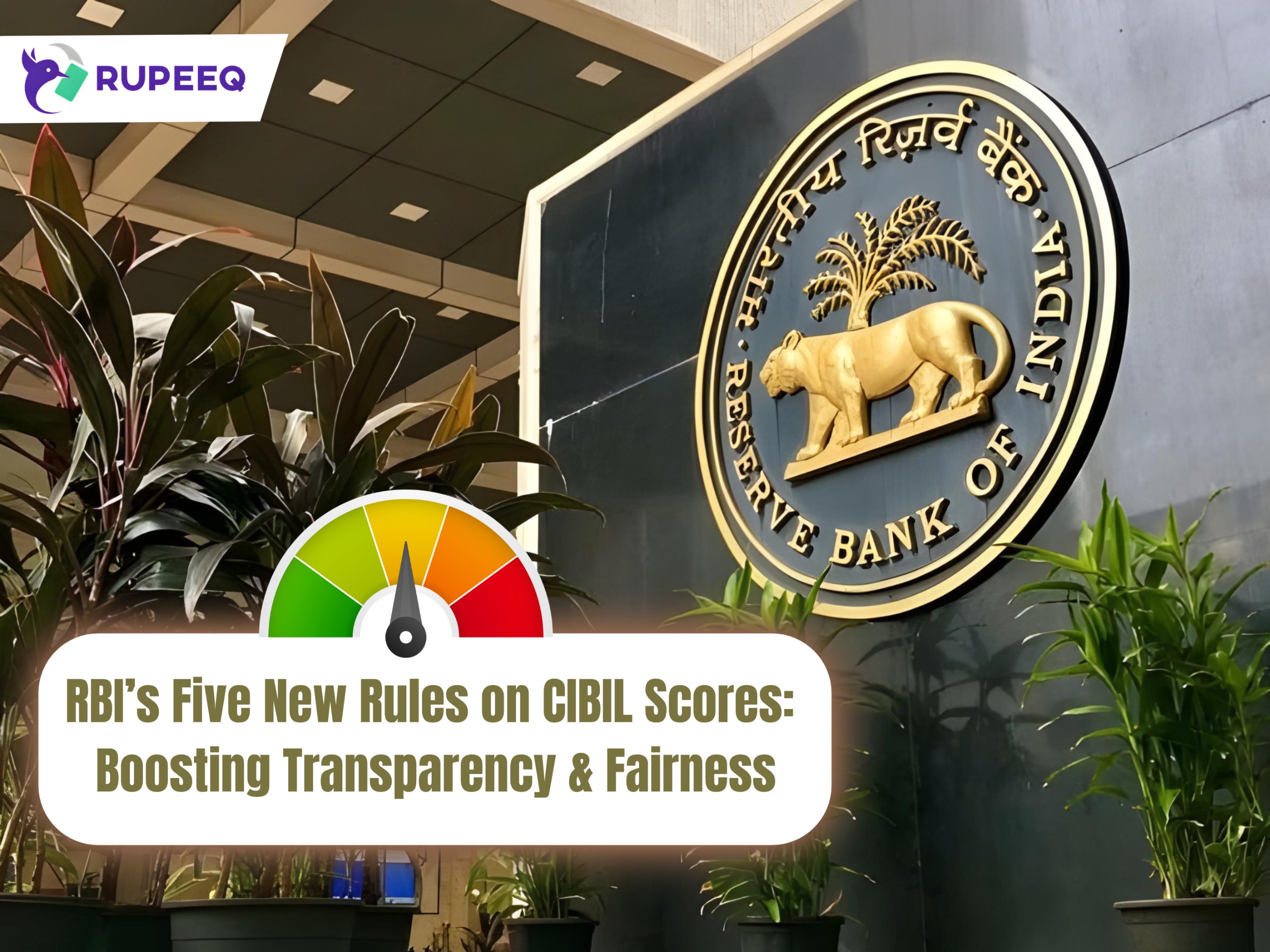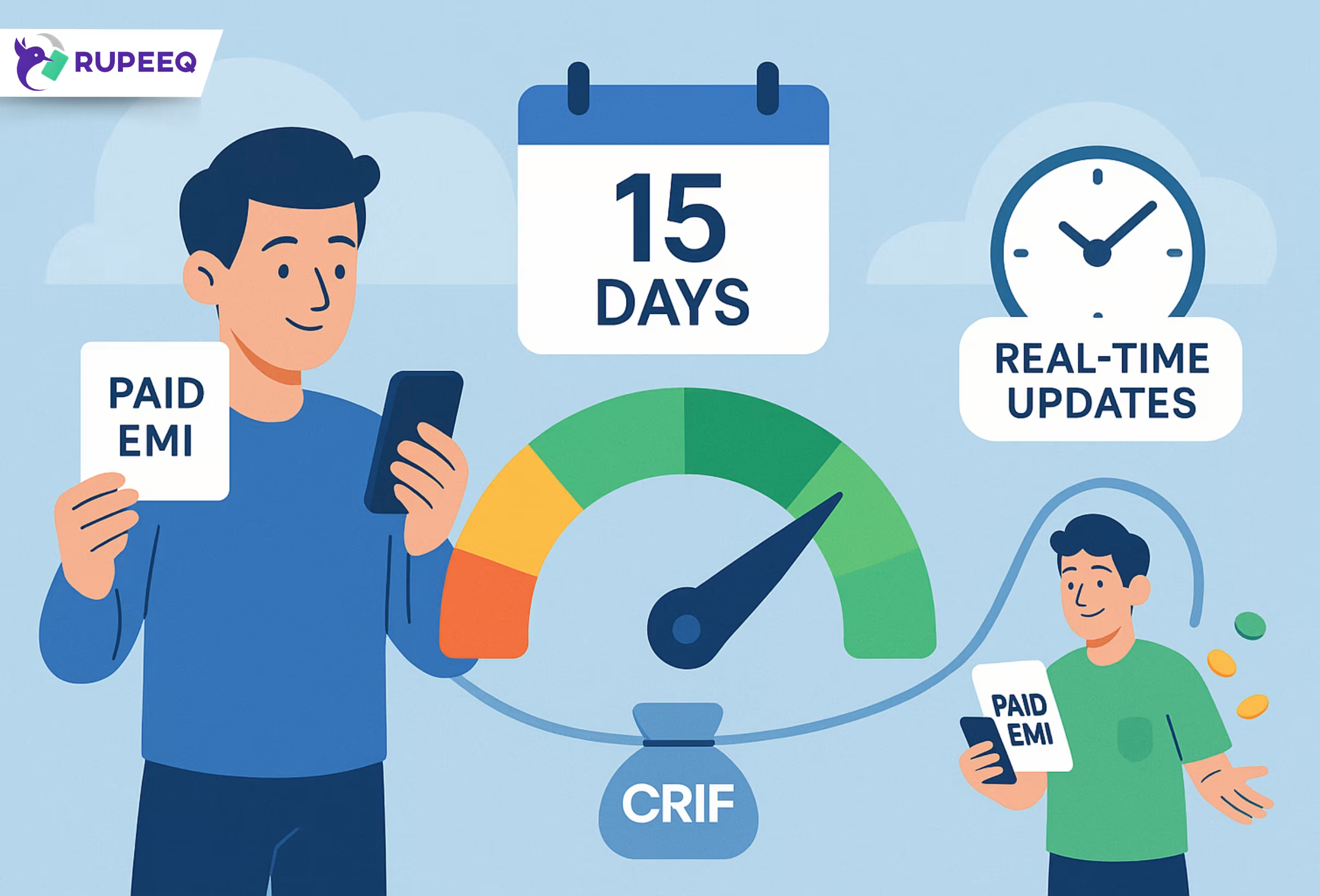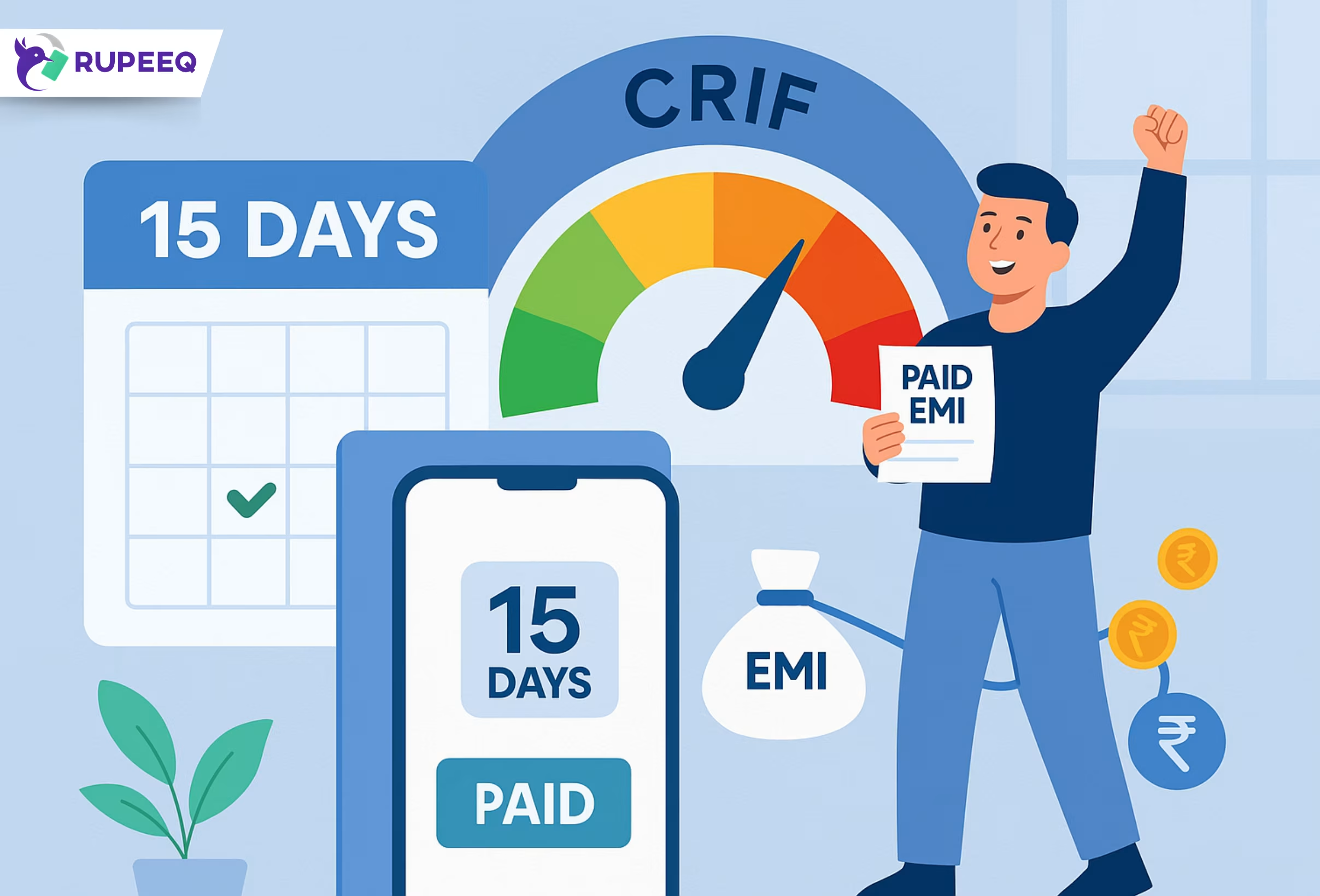Your credit score is crucial if you want to take a loan or get a credit card. However, many people are unaware of how this score works or why their loan is rejected.
To make things easier and fairer for people, the Reserve Bank of India (RBI) has introduced 5 new rules. These rules will help you understand your score better, correct mistakes, and know what’s affecting your credit health.
Let’s understand these rules one by one and how they help you.
1. One Free Credit Report Every Year
Now, you can get full credit report for free every year from each credit bureau (like CIBIL, Experian, etc.).
What does this mean?
You can check your credit score and full credit report once a year without paying anything.
How this helps you:
- You can see if there are any mistakes in your report
- You can track your score regularly
- You will know what is helping or hurting your credit score
RupeeQ Tip: You can also check your credit score for free anytime on RupeeQ. It’s quick and easy!
2. Faster Correction of Errors – Within 30 Days
Sometimes, your credit report may show wrong details, like a loan you never took or missed payments that you paid on time.
With this new rule, if you find any mistake and raise a complaint, the credit bureau and the lender must fix the issue within 30 days.
Why is this important?
- You don’t have to wait for months to get errors corrected
- Your score won’t suffer because of someone else’s mistake
- If they don’t fix it in 30 days, it will be taken to the next level for action
3. Lenders Must Tell You Why They Rejected Your Loan
Earlier, if your loan was rejected, the bank or lender didn’t always tell you why.
Now, lenders must tell you the reason for rejecting your loan or credit card application. They should also guide you on how to improve your chances next time.
Why is this useful?
- You’ll know the exact problem (low score, unpaid EMI, high credit usage, etc.)
- You can work on the issue and apply again with better chances
RupeeQ Tip: After checking your credit report, if you find that your score is low, then you can start by repaying small loans on time to improve your creditworthiness.
4. Loan Repayments Will Be Updated Faster
Before, even if you paid off your loan or credit card bill, it sometimes took a long time to reflect in your credit report.
Now, banks and lenders must update your repayment details within 21 days.
Why this matters:
- Your credit report will show the correct status quickly
- Your score will improve faster if you repay loans on time
- You can apply for new loans with better chances
5. Credit Scores Will Be the Same Across All Bureaus
Earlier, different credit bureaus gave different scores, which confused many people.
Now, all credit bureaus must use a standard method to calculate your credit score. This will ensure similar scores everywhere.
Benefits of this rule:
- You get a fair score no matter which bureau is used
- Lenders will not be confused or biased while checking your score
- You get equal chances everywhere
6. Low CIBIL Score? You Can Still Get a Loan!
Earlier, if your CIBIL score was low, most banks would immediately reject your loan application. But now, things have changed for the better.
RBI’s New Rule: Banks Can’t Judge Only by Your Score
Under the new RBI rules, banks and lenders can’t reject a loan just because your credit score is low. They must check your overall financial health before making a decision.
What Banks Must Now Consider:
Even with a low score, your application will be judged on:
- Your income (Is it regular and sufficient?)
- Current EMI load (Are you already paying many loans?)
- Your banking habits (Do you maintain balance, avoid cheque bounces, etc.?)
- Job or business stability (How steady is your source of income?)
Why This Helps You:
If your score dropped in the past but now your finances have improved then you have a real chance! The new rule gives you the opportunity to show that you are creditworthy beyond just numbers.
RupeeQ Tip: If your CIBIL score is low but your income is stable and EMIs are under control, check pre-approved loan offers on RupeeQ—you might still qualify!
What This Means for You
Benefit What it does for you Control You can monitor and correct your credit info Transparency You know exactly why applications fail Timeliness Updates reflect much faster Fairness Scores are consistent across lenders What Should You Do Now?
Here are 5 simple steps to take:
- Check your free credit score
- Download your report and read it carefully
- Look for mistakes and raise a complaint if needed
- Ask your lender why your loan was rejected, if it was rejected in the first place.
- Pay EMIs and credit card bills on time to boost your score
Conclusion
The RBI’s recent rules empower you with more control, clarity, and fairness in the credit ecosystem. Whether you’re applying for a home loan, car loan, or business financing, the system is now built to support you better—and not spring surprises.







